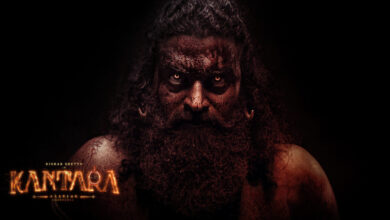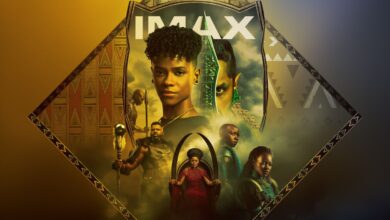Challengers Movie Review: Luca Guadagnino’s Film Is an Energetic and Irreverent Film
Cast: Zendaya, Josh O’Connor, Mike Faist, Wes Meserve, Heidi Garza, Faith Fay, Keanu Ham, Courtney Brooks, Scottie DiGiacomo, A.J. Lister, Christine Dye, Joe Curtin
Director: Luca Guadagnino
Where to Watch: In Theaters
Filmyhype.com Ratings: 4/5 (Four stars)
Luca Guadagnino reminds us right from the first image of Challengers that the unpredictable entanglements that relationships give rise to are a great interest of his: a shot from above of a tennis court with its dividing lines intersecting with each other. This new feature film of his arrives two years after Bones and All, with which Guadagnino won the Silver Lion for director at the Venice Film Festival cinema. Challengers, the film that should have opened Venezia 80 before the Hollywood actors’ strike and which arrives in cinemas on April 24th with Warner. Bros is a film that reinterprets the tradition of American cinema linked to the sports genre and manages to bring a living, tense, and more corporeal soul into dialogue with another, more theoretical, schematic, and cerebral one. An exercise that he carries out with the same grace and fun with which he deconstructs an MGM-produced authorial pop cinema with extreme, glam, and almost arthouse narrative solutions.
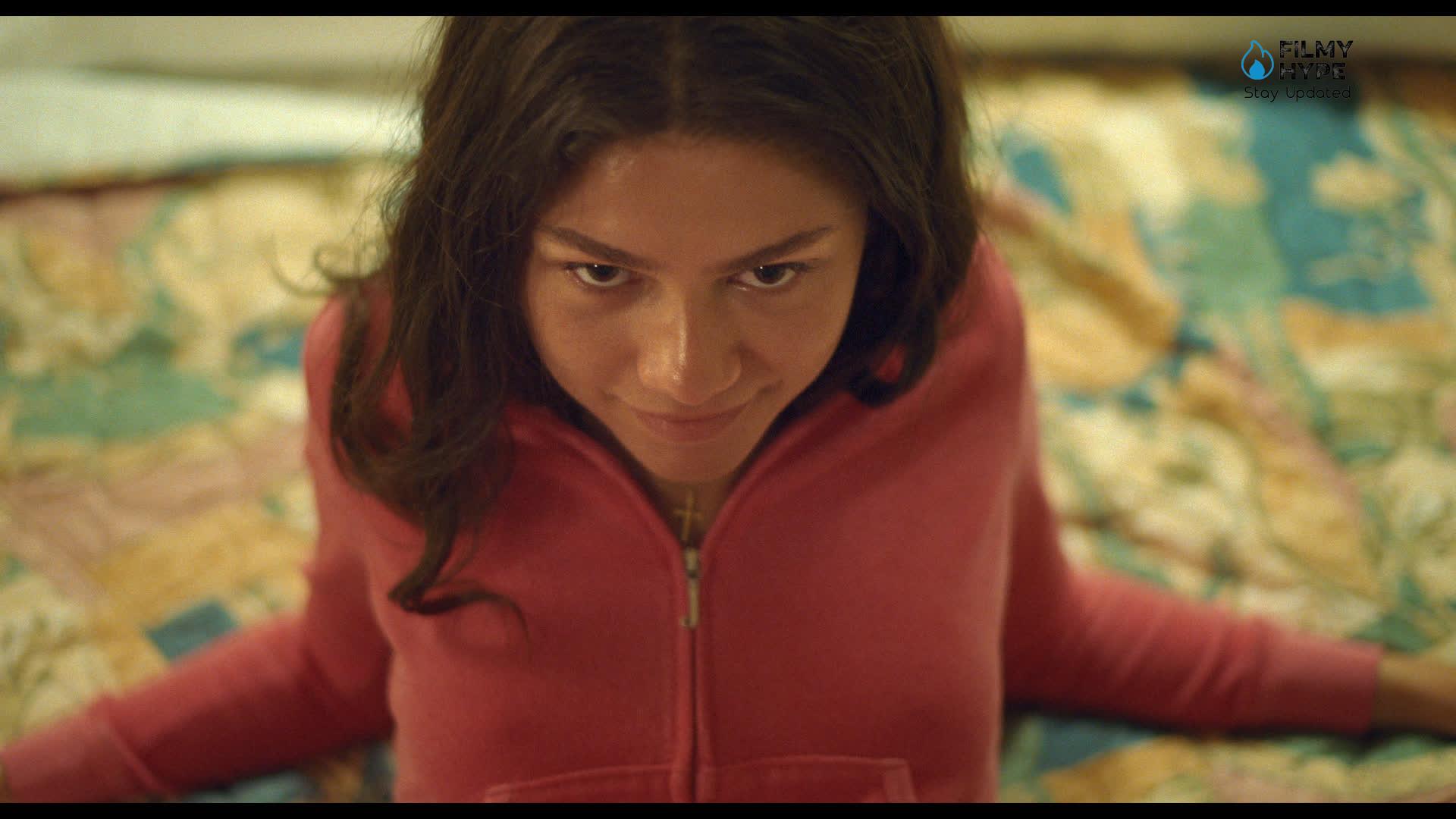
Any assonance you can make between Challengers and tennis is fine. Life as a sport, love as a competition, ambition before friendship. Yes, yes and yes. Also, you never know which side of the field the ball will land on and it is always better to keep it in play than to let it end up inside the line. After all, Woody Allen had taught us this, applying the fatality of the game to the crime of Match Point, where, however, luck was the ace up the sleeve of destiny and, therefore, of the protagonists, while it is only determination, desire and discipline that motivates the characters from Luca Guadagnino ‘s film. Above all Tashi Duncan, a stratospheric Zendaya, who Patrick/Josh O’Connor describes to his friend Art/Mike Faist as a being from another planet. And it’s true.
Challengers Movie Review: The Story Plot
Tashi Duncan (Zendaya) doesn’t want to be a “homewrecker”, she often says so during Challengers and sometimes she even seems quite convinced of it. Yet she cannot escape the invitation of Art (Faist) and Patrick (O’Connor), friends since they were 12 (it seems they also shared their first adolescent sexual fantasy), to enter their lives. She probably does it because she feels she can hold a predominant position over two boys who have no longer competed with each other for some time and who, although profoundly different, look at her with the same desire in the depths of their eyes. Maybe because they want to compete again? However, something breaks the bank, profoundly undermining Tashi’s role and bringing a cruel and unexpected earthquake in the relationship between the three young people. The girl, an extraordinary promise of world tennis, suffers an injury so serious that it forces her to abandon the tennis courts to become a coach.

Her passions, her hopes, the desire for revenge, and all her frustrations she pours into her husband, Art, obsessively trying to make him an internationally renowned tennis player. She succeeds for a while, becoming famous anyway, but the man is not her: he doesn’t have her spirit, her desire, and her determination, although she takes them on to be able to defeat her former close friend and rival her. Time, however, finally bends Art, who begins to want something other than tennis from his life. An inconceivable vision for Tashi, which pushes her to try to re-motivate him by enrolling him in an ATP Challenger tournament, a second-category competition designed to allow second-tier players to acquire a sufficient ranking and access the qualifying draws for the various Opens. A prospect that the man willingly accepts, like every decision of his wife. What he doesn’t know, however, is that Patrick is also on board…
Challengers Movie Review and Analysis
Before any other analysis, it is important to clarify from the outset that Challengers is neither a purely sports film nor a story focused solely on the eroticism of the three protagonists. By fusing these two narrative dimensions, Luca Guadagnino chooses to combine their manifest and profound features in a discourse that moves coherently in a single direction, exploiting both the dynamics strictly connected to ambition on the playing field and the possible emotional toxicities of a triangle from which no one comes out very well. On this point, it is good to maintain particular attention, given that in the underlying sensual inflection, ethics loses all capacity for definition and boundaries at the exact moment in which we begin to know the people involved in the story well.
In all of this, the sport of tennis manages to fit together perfectly, expressing that selfish sporting individualism and that search for personal fame, in both an internal and external context. The main action of Challengers, not surprisingly, takes place and develops in two specific and parallel narrative dimensions, strong in a bond that continuously fuels the reasons of both parties: the clash/game between Patrick and Art and the personal dynamics that see them directly involved in the mutual attraction towards Tashi. Both of these sequences, however, on their own would take on very different meanings, were it not for the fact that the director and the screenwriter (Justin Kuritzkes) always go beyond what we see, digging into the personal stories of all of them, and then tearing away that competitive veneer that here takes on a much more multifaceted value and is difficult to define and read immediately.
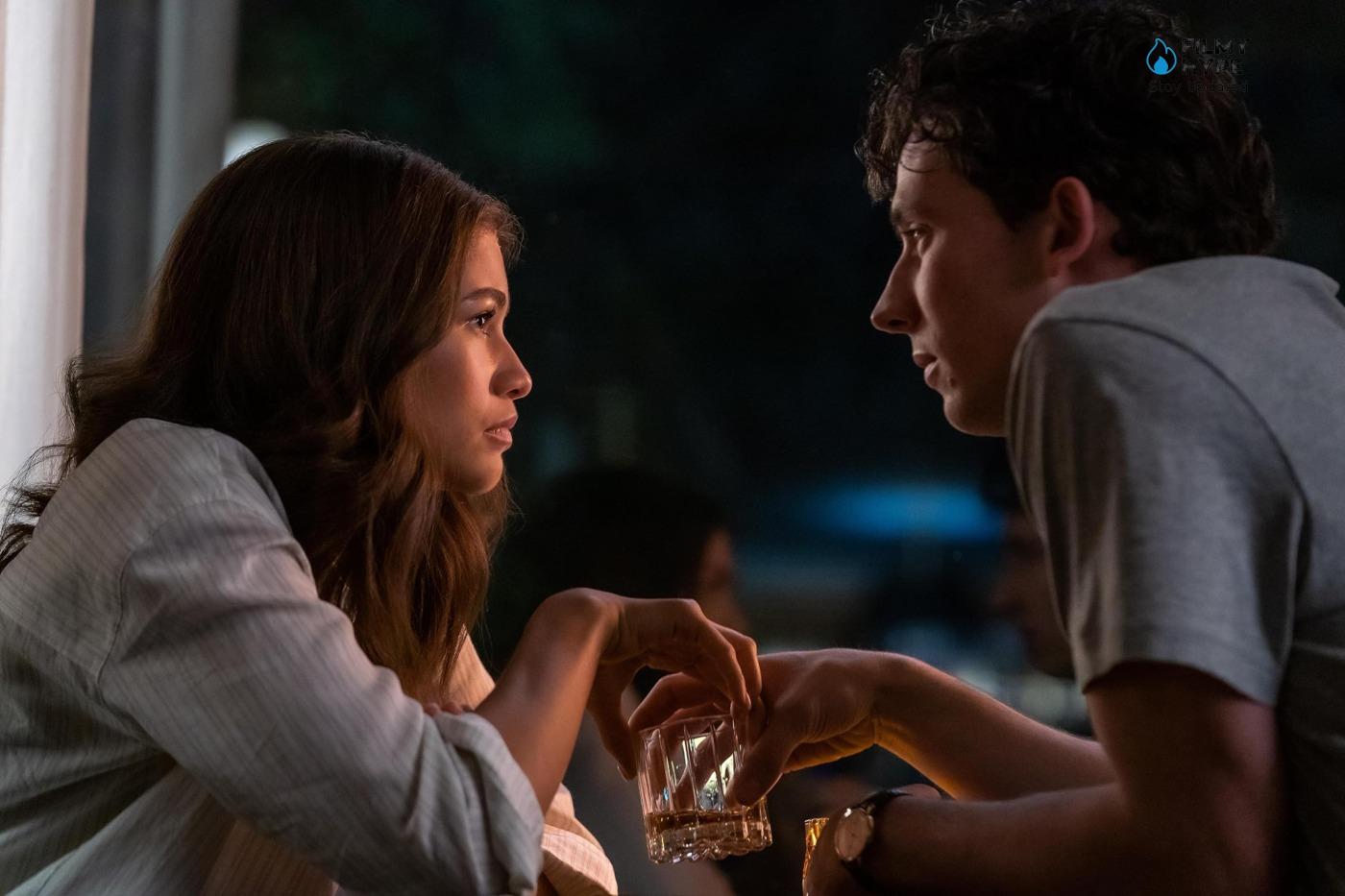
It is precisely the problematic intimacy of each protagonist that keeps us in suspense, continually pushing forward a tireless and impetuous narrative, in some of its moments, fueled by a very dynamic and detailed direction, and by a pressing soundtrack. Not just sex, attraction, or friendship, but above all possession, the desire to succeed at all costs, betrayal, and above all manipulation. These are the profound reasons on the plate of Challengers, these are the weapons and the real talents of its protagonists, of these characters capable of measuring the value of their own existence to the detriment of everything else. The gaze of the film, therefore, just as happens with a tennis ball at the center of a no-holds-barred match, moves continuously, from mouth to mouth, from kiss to kiss, from look to look, from move to move, becoming the direct testimony of a bond with all personal rules and interpretations, nourished by a mutual evil that finds maximum expression precisely in the most direct, easy and sincere competitive confrontation possible.
Yes, watching Challengers is something recommended both for the experience it offers in terms of writing and formal construction. Luca Guadagnino takes a sentimental triangle like many others previously seen at the cinema, and attempts to smooth out its shadows and eroticism, broadening its scope with a more sporting dimension. Not a perfect film, but still an experience that requires the big screen to give its best, feeding on an energy that continually pervades its developments, even the most banal and simple to predict. The general impact, as anticipated, is gradually fueled by a direction in continuous movement, always ready to enhance, transform, play, admire, observe, and channel an experience with both simple and inspired features, capable of leaving something even just through the Images.
In all of this, it is the interpretations of the protagonists that shine above all else, acting as an initial and continuous attraction towards a private and public narrative dimension that moves between the folds of their bodies, looks, and smiles. In the moments in which silence imprisons the secret reasons of all of them, however, it is precisely the soundtrack (curated by Trent Reznor and Atticus Ross) that explodes, destabilizing and involving directly in the things not said but only mentioned, becoming a language in its own right, a signal of something and a pencil with a direct line, both light and deep. Probably the idea that most attracted Luca Guadagnino was managing his Challengers giving the impression of having a sense of “structured cinematic anarchy” on his side. The film begins and ends several times, changing linguistic register, inserting peculiar visual solutions (the handheld camera, the drones) even in contrast with each other, not disdaining the reference sometimes to Greek epics and sometimes to modern stardom.
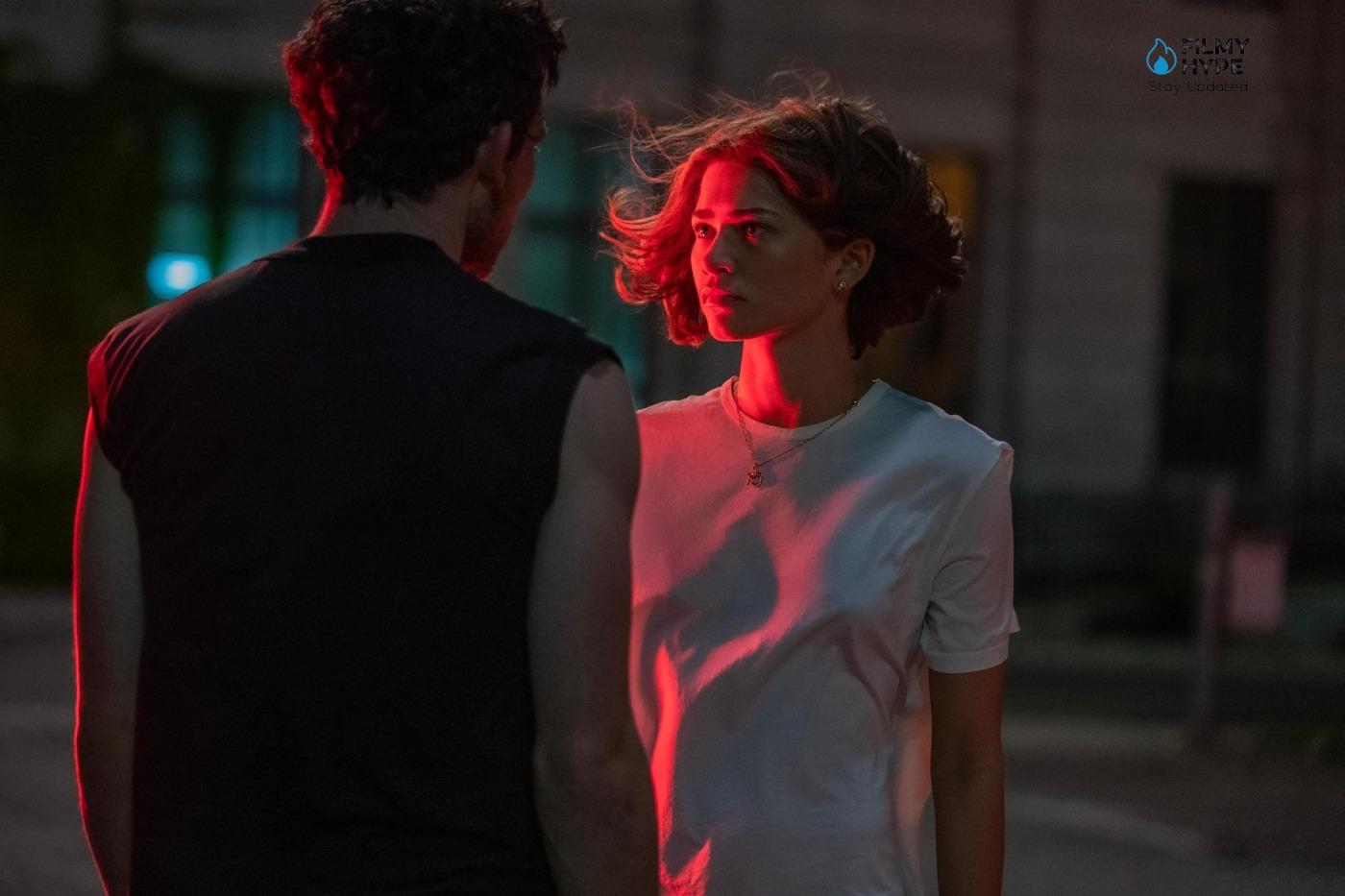
These continuous (s)changes always make the film alive, apparently almost schizophrenic in moments of editing, but in reality, well-tuned, as indicated by the methodology of the musical insertions that sometimes cross it and sometimes reveal it (Reznor & Ross and “Pensiero stupendo” by Patty Pravo), and the comprehensibility of the mosaic narrative, despite the elasticity with which it is designed. In a broad frame that indicates how one never leaves the playing field, the film bounces from year to year through a reconstructive narrative that always tends to connect the feverish human condition according to sporting logic. We cannot talk about something without also talking about tennis at the same time: the match becomes a metaphor for the relationship, the sublimation of clash, confrontation, and sex, generating a cathartic power similar to that of cinema and therefore irresistible for those lucky enough to be able to take part in it – the players – but also for those who manage to grasp this nuance.
A meta idea that suggests how this type of “sports” spectator is voyeurist and potentially comparable to cinephiles, thirsty for the lives of others to the extent that it is true, but also codified. Here is the deepest meaning of the filmmaker’s reflection on the American sports genre. A remarkable conceptual apparatus with which Challengers proposes its key to the human condition (or, better, to a certain humanity), represented by three interchangeable points of a triangle in constant movements, like a hurricane – Sirk again – which for its part lives of bodies, sweat, screams, kisses on the neck and broken rackets. The trio of actors lends itself to this continuous evolution. Still, it is the character of Zendaya who always moves the lines, deconstructing and then reconstructing herself, Mephistophelian and saintly, manipulator and victim of events. She is always desired, loved, and never satisfied and, among them, the most aware that only by fueling competition can one continue to exist. This is why she remains the strongest of her, despite the scar on her knee. Su Tashi, giver of life, is the personification of a film that tells us that we cannot talk about something without also talking about tennis at the same time, just as we cannot live without continuing to want to play… Although the title refers to the other two parties involved.
First of all, this is not a film about a polyamorous relationship, romantic anarchy, or simply a threesome. It is not, to be clear, The Dreamers by Bernardo Bertolucci or Jules and Jim by François Truffaut (although, between the two, it must be said that it is closer to the second than to the first). There is only one “controversial” scene (if a three-way kiss can still be defined as controversial) and it represents more of a moment of play than the true theme of the film which can easily be summarized in the words of the great poet Annalisa: ” I saw her kissing him, kissing her, kissing me… “. In short, it is simply a film about a love triangle in which two knights compete for the love of a Queen. Do you know Arthur, Lancelot, and Guinevere? The same thing. Then, yes, under the surface there is a homoerotic and bromance current and the promise of a non-canonical relationship which then never materializes.

The second misunderstanding to get rid of: this is not a film about tennis. There are many films about the sport played by Novak Djoković, but this is not one of them. Here tennis is just a color, a scenario, also represented with very little accuracy because it is not a film about tennis. I originally thought about writing that Challengers is to real tennis what Rocky is to real boxing (i.e., zero), but that wasn’t an accurate statement. The depiction of boxing in Rocky is over the top and crazy, but it’s still central to the narrative. The athletic, sporting, and competitive gestures in Rocky are still important, however, transfigured in cinematic fiction. In Challengers, as much as Guadagnino tries to invent something to represent David Foster Wallace’s favorite sporting discipline (we will return to this aspect later), there is no interest in dynamic action. The focus of the film lies elsewhere.
Having put these two elements aside, let’s talk about the film for what it is, and let’s start with its weakest aspect, the script by Justin Kuritzkes, a young American playwright who has made headlines for a series of videos on YouTube that isn’t there it’s another way than defining “cringe”, widely parodied by everyone (even by The New Yorker). Kuritzkes is a somewhat pretentious author, very convinced that he is saying extremely provocative things. And perhaps, from the point of view of the context of American society, he says them, but in Europe, where we are used to many different things, his prurient themes appear decidedly naïve. Bigoted fantasies are told with excessive seriousness. But this is not his biggest fault as far as Guadagnino’s film is concerned which, instead, lies in a very predictable and mechanical script in substance, written taking great care to place all the turning points in the right place and to follow it to the letter.
Robert McKee’s tenets of writing. The script of a product, rather than a work, is designed to be successful and provoke without really provoking. Of course, the form is more refined but, here too, it is not enough to reduce a story to stew and then mix the present with the past, to create avant-garde. Kuritzkes’ script would have made a mediocre film in the hands of most directors, but fortunately for us, Guadagnino is not most directors, and despite having to work from a script so uninspired and so unconsciously bigoted, he manages to bring out a splendid film. And let’s move on to the strong aspects of Challengers, which can all be summarized in a simple concept: the taste of Luca Guadagnino. Taste in choosing actors. Taste in finding the right director of photography (Sayombhu Mukdeeprom, with whom the director has collaborated several times). Taste in finding shots. Taste in editing (assisted by Marco Costa) and in managing the film’s timing. Taste in choosing the stylist for the costumes (that rock star of JW Anderson fashion). Taste for finding the perfect artists for the soundtrack (Trent Reznor and Atticus Ross, just like for Bones and All).
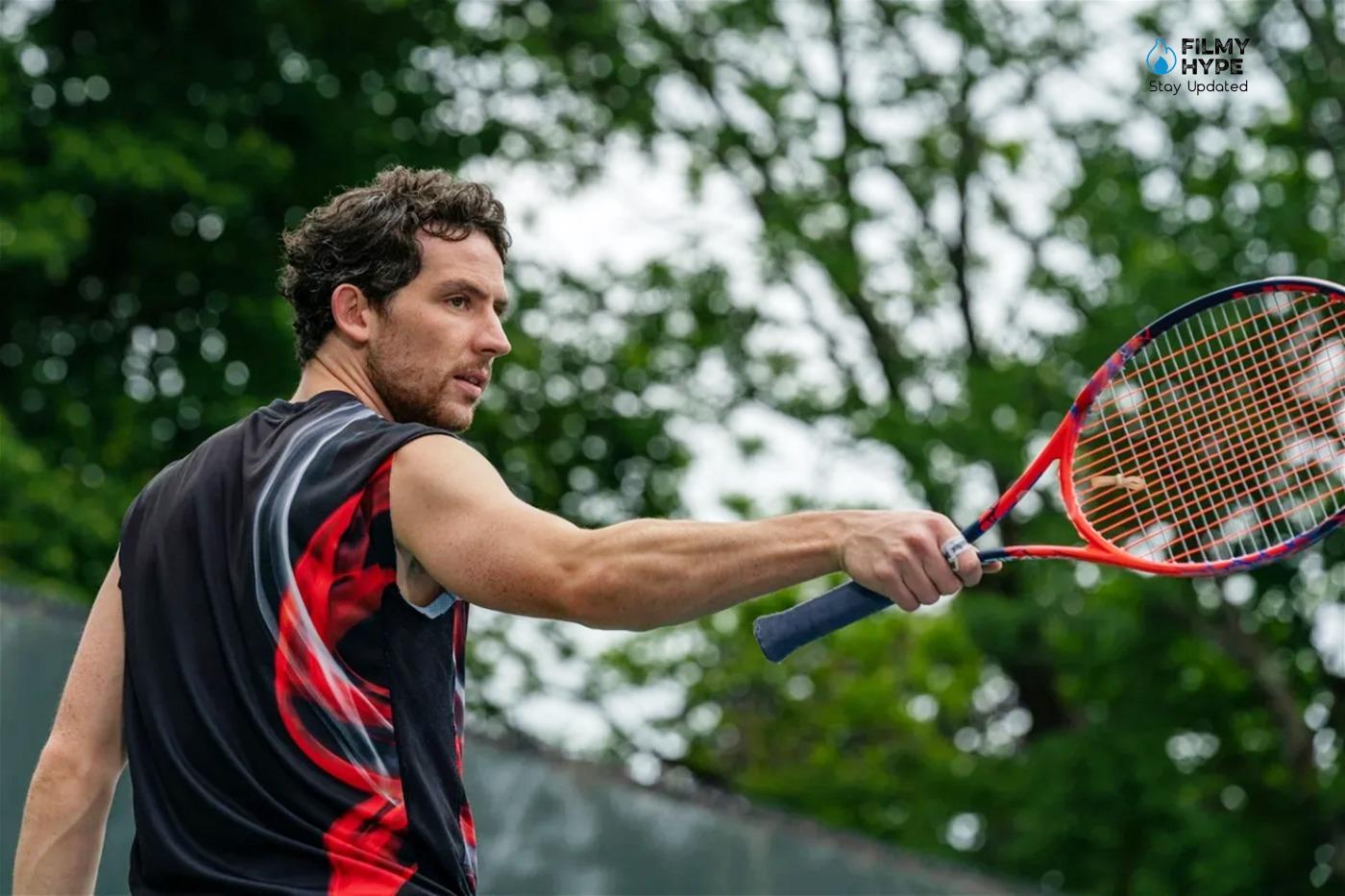
Now, be careful, when I talk about “taste” I don’t necessarily mean “good taste”. In short, I don’t mean that Guadagnino is someone capable of knowing how to create (or have created) beautiful things and then combine them well together. He’s very good at it, let’s be clear. But he is also very good at NOT doing it, at alternating moments of very refined cinema with kitsch, or camp, or trashy solutions, and making them work perfectly in the general context of the film. Take the depiction of the tennis game in Challengers, for example. The director decides to stay as far away as possible, not only from the reality of the game and its rules and terminologies but also from how tennis has been represented both in the cinema previously and in modern television news. To do this, a whole series of shooting solutions are invented to convey the action: subjective shots of the players on the pitch (do you remember Hardcore! by Ilya Naishuller?
The same thing but worse), impossible shots from below the playing field (as in The Hidden Truths of Robert Zemeckis), subjective shots of the ball ( Shaolin Soccer style), high-angle shots, balls (made digitally) that fall in the viewer’s face as if it weren’t even a 3D Zeta series film, slow motion jumps over the net (and if you’re thinking of Holly and Benji, you’re not far wrong). Of all these solutions, half of them don’t work. Yet, Guadagnino manages to make sense of it. There are excesses, errors, absurdities, apparent embarrassments, and incompetence, which however give the film a necessary and delightful freshness of vision and a punk and pop streak that contrasts well with the rest of the film, which is refined formal and aesthetics. Other examples: the didactic use of the soundtrack (splendid). When a character is in a moment of deep emotional turmoil, a particularly cacophonous and harsh musical moment starts suddenly and at full volume.
It happens very often throughout the film, and, at the umpteenth repetition, it almost seems like we are witnessing a parody. Yet, even in this case, Guadagnino transforms a crude solution into something not only perfectly effective but also refined. The measure is elegance but, often, also boredom. Excess is tackiness, but often also vitality. And this film by Guadagnino is undoubtedly alive. Continuous? The large advertising poster of the couple (in life and sport) which is torn by the storm, symbolizes the ongoing division of the characters. Or the storm itself, which, punctual like taxes, shows up at just the right time, underlining the emotional turmoil of the protagonists. These very banal and coarse-grained metaphors would be unforgivable for a high-level author, but Guadagnino combines with equally many solutions of infinite refinement, creating a unique contrast. This, in the end, is Guadagnino’s style and unique voice. A style that ennobles substance, form that becomes content, superficiality that becomes depth, the tacky that transforms into the sublime.
Challengers Movie Review: The Last Words
Challengers is an energetic and irreverent film, certainly capable of leaving something to the audience at the cinema. Starting from a love triangle that discovers its reasons on and off the tennis court, Luca Guadagnino launches spectators into the problematic attraction of 3 people who are difficult to define and label, laying the boundaries of a story that feeds on the cinematographic medium and specific interpretations of each to enchant and at the same time betray some stereotypes in this sense. Despite the predictability of some moments, the feature film entertains and captures thanks to dynamic direction and an explosive soundtrack beyond all expectations. In the toxicity of the on-screen relationship, it is the protagonists themselves and their specific needs that are put under analysis, working closely with a sport that manages to embrace the profound motivations of each of them at 360 degrees.



